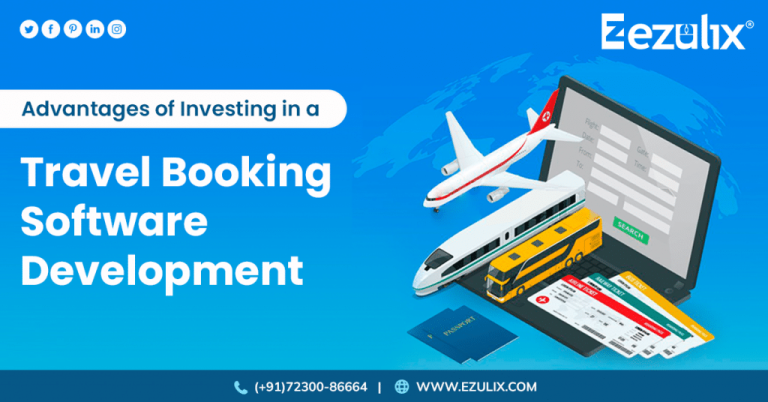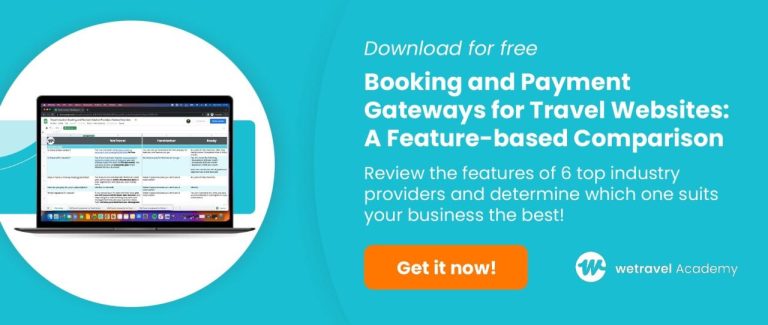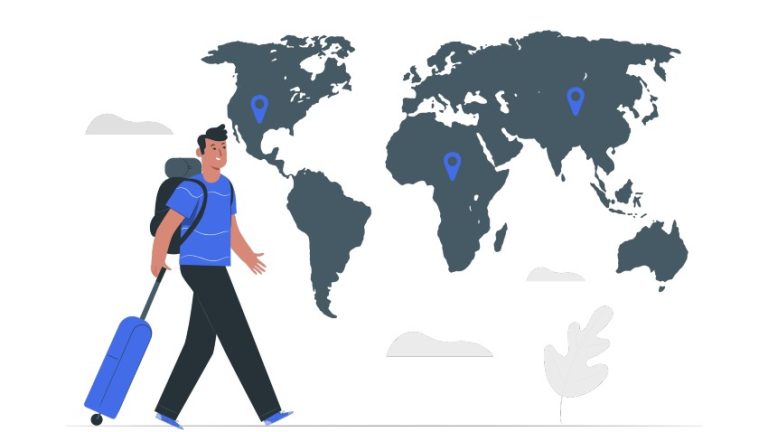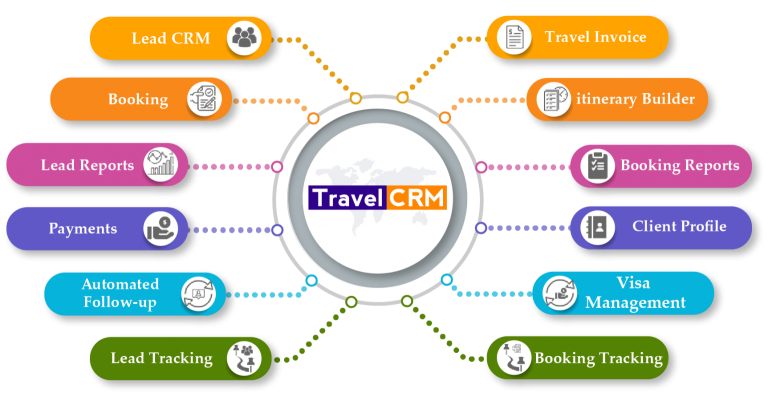Booking Software for Tour Operators A Comprehensive Guide
Booking software for tour operators is revolutionizing the industry, offering a streamlined and efficient way to manage reservations, handle payments, and connect with customers. This comprehensive guide dives deep into the features, benefits, and market trends surrounding this essential technology for travel businesses. We’ll explore everything from the initial setup and pricing to the future of AI integration and how this software can significantly impact a tour operator’s bottom line.
Tour operators often face challenges like managing multiple bookings across various channels, processing payments securely, and keeping track of inventory. Booking software for tour operators addresses these issues head-on, offering a centralized platform for managing all aspects of the booking process. From online booking engines to robust reporting tools, these solutions are designed to simplify operations, enhance customer experience, and drive revenue growth. This detailed overview will illuminate the various facets of this critical tool for travel businesses.
Introduction to Booking Software for Tour Operators
Booking software for tour operators streamlines the entire process of managing bookings, from initial inquiries to final confirmations. This specialized software provides a centralized platform for handling customer interactions, inventory management, and financial transactions, improving efficiency and profitability. It significantly reduces manual effort and minimizes errors, allowing tour operators to focus on expanding their business.
Booking software empowers tour operators with a comprehensive suite of tools, automating tasks and optimizing operations. This leads to improved customer service, enhanced financial management, and more accurate inventory control, crucial elements in the competitive travel industry.
Key Functionalities of Booking Software
Booking software typically offers a wide array of functionalities, encompassing various aspects of tour operation management. These functionalities include: handling customer inquiries, managing reservations, processing payments, and generating reports. Centralized data management, accurate inventory tracking, and streamlined communication with clients are also core components.
- Customer Relationship Management (CRM): This functionality allows tour operators to effectively manage customer interactions, track booking history, and personalize services, thereby enhancing customer satisfaction. It enables building stronger customer relationships by storing and accessing important customer data.
- Inventory Management: The software tracks available tour packages, accommodations, and other services in real-time. This ensures accurate representation of available inventory and prevents overbooking, leading to improved resource utilization.
- Payment Processing: Secure payment processing integration enables seamless transactions, reducing manual effort and minimizing risk. The software facilitates secure online payments from clients and reliably handles payment processing.
- Reporting and Analytics: Comprehensive reporting tools provide valuable insights into booking trends, revenue generation, and other key performance indicators (KPIs). These reports assist in making data-driven decisions for strategic business planning and growth.
Target Audience
The target audience for booking software for tour operators extends beyond the operators themselves. Travel agents, wholesalers, and even individual travelers often utilize these systems to book tours and related services. The specific needs and functionalities will differ based on the user type.
Common Challenges Faced by Tour Operators Without Booking Software
Tour operators without dedicated booking software often encounter a range of challenges. These include inefficient manual processes, potential errors in data entry, difficulty in managing inventory, and limited ability to track customer data effectively. Without a centralized system, communication with clients and partners can become complex and time-consuming.
- Inefficient Booking Processes: Manual booking methods can lead to significant delays and errors. Inaccurate data entry and inconsistent communication are frequent issues.
- Inventory Management Issues: Tracking available tours and services manually can result in overbooking and lost revenue opportunities.
- Limited Customer Data: Without a CRM system, understanding customer preferences and booking patterns becomes difficult, hindering the ability to personalize services and build loyalty.
- Difficulty in Reporting and Analysis: Analyzing sales data and identifying trends becomes a complex, manual process, hindering informed decision-making.
Comparison of Booking Software Types
Different types of booking software cater to various needs and budgets. Here’s a comparative overview:
| Feature | Cloud-Based | On-Premise |
|---|---|---|
| Deployment | Hosted on a remote server, accessed via the internet. | Installed and maintained on the operator’s server. |
| Cost | Typically lower initial cost and ongoing subscription fees. | Higher initial investment, but fixed ongoing costs. |
| Scalability | Easy to scale resources up or down based on demand. | Scaling requires investment in additional hardware and infrastructure. |
| Security | Security is managed by the cloud provider. | Security is the operator’s responsibility. |
| Support | Support is usually provided by the vendor. | Support needs to be arranged by the operator. |
Features and Functionality: Booking Software For Tour Operators

Tour operators rely heavily on robust booking software to streamline operations and maximize efficiency. Effective software solutions empower them to manage their offerings, handle bookings, and interact with clients seamlessly. This section will delve into the critical features and functionalities that define a superior booking system.
Importance of Online Booking Features
Online booking features are crucial for modern tour operators. They provide 24/7 accessibility, allowing clients to book tours at their convenience. This accessibility translates to increased bookings and broader reach, potentially attracting a wider customer base. The ability to view availability in real-time is also a key advantage, enabling operators to manage their inventory effectively and avoid overbooking. This ensures that clients can confidently make reservations without the worry of tours being sold out.
Benefits of Integrated Payment Gateways
Integrating secure payment gateways is essential for seamless transaction processing. This eliminates the need for manual handling of payments, reducing administrative overhead and minimizing the risk of errors. Automated payment processing streamlines the booking process for both the operator and the client, increasing customer satisfaction. Reliable payment gateways ensure secure handling of sensitive financial information, complying with industry standards and building trust with clients.
Need for Robust Inventory Management Tools
Effective inventory management is paramount for tour operators. Robust inventory management tools provide real-time visibility into tour availability, ensuring accurate representation of capacity. This prevents overbooking and ensures clients are presented with accurate information about tour options. The tools should allow for flexible adjustments to availability based on real-time factors like weather or special events, adapting to dynamic situations and maximizing revenue opportunities.
Examples of Customizable Reporting Tools
Comprehensive reporting tools are vital for tour operators to gain insights into their business performance. Customizable reports allow for data analysis across various aspects of operations, such as sales trends, customer demographics, and tour popularity. Operators can generate reports on booking patterns, revenue streams, and customer preferences, providing valuable insights for strategic decision-making and marketing campaigns. Examples include reports on the most popular tours, peak booking seasons, and customer feedback trends.
Comparison of Customer Support Options
Different booking software solutions offer various customer support options, each with its advantages and disadvantages. Live chat, email support, and phone support are common options. The choice of support method should align with the operator’s specific needs and the anticipated volume of inquiries. Prioritizing quick response times and effective problem resolution is crucial for maintaining client satisfaction.
Value of Secure Data Storage and Privacy Protocols
Ensuring secure data storage and adherence to privacy protocols is paramount. Reliable software solutions employ advanced encryption methods to protect sensitive customer data, such as personal information and payment details. Compliance with relevant data privacy regulations is essential for maintaining trust and avoiding legal repercussions. The integrity of the data and the protection of customer information are key components for a trustworthy and professional service.
Comparison of Booking Software Solutions
| Feature | Solution A | Solution B | Solution C |
|---|---|---|---|
| Online Booking Interface | Intuitive, user-friendly design | Modern, responsive design | Simple, but effective design |
| Payment Gateway Integration | Supports major payment methods | Secure, PCI DSS compliant | Limited payment options |
| Inventory Management | Real-time availability updates | Flexible scheduling options | Basic inventory tracking |
| Reporting Tools | Comprehensive, customizable reports | User-friendly reporting dashboards | Limited reporting options |
| Customer Support | 24/7 live chat and email | Phone support and email | Email support only |
Benefits for Tour Operators
This booking software provides significant advantages for tour operators, streamlining operations, enhancing customer experiences, and ultimately boosting profitability. It empowers operators to focus on core business functions, leaving administrative tasks to the software.
This section details the numerous benefits of integrating this software, demonstrating its impact on efficiency, customer satisfaction, and revenue generation. The software facilitates seamless communication, reduces administrative burdens, and presents clear pathways to improved financial outcomes.
Increased Efficiency
This software automates many manual tasks, significantly boosting operational efficiency. By automating tasks like booking confirmations, itinerary management, and payment processing, tour operators can dedicate more time to client interaction and strategic planning. Reduced manual intervention leads to quicker turnaround times for requests and bookings, which in turn leads to improved customer satisfaction.
Streamlined Operations
The software streamlines various operational aspects of tour operations. Automated processes for customer communication, invoice generation, and inventory management create a smoother workflow. This integrated approach allows operators to manage multiple aspects of their business from a single platform, saving valuable time and resources.
Improved Customer Experience
Improved customer service is a direct outcome of the software’s capabilities. Real-time updates on bookings, personalized communication, and secure payment options all contribute to a more positive customer experience. Customers appreciate the ease of booking, accessing information, and resolving queries, fostering loyalty and repeat business.
Reduced Administrative Overhead
The software dramatically reduces the administrative burden on tour operators. Manual tasks like data entry, report generation, and invoice processing are largely automated, freeing up staff for more value-added activities. This efficiency translates to substantial cost savings and a more agile operation.
Improved Revenue Generation
This software helps maximize revenue potential. The ability to manage bookings effectively, control inventory, and offer tailored packages increases the chances of securing profitable deals. The software’s features enable the identification of revenue opportunities, such as package bundling and promotional offers, leading to increased sales and revenue streams.
Fostered Communication
The software enhances communication between tour operators and clients, as well as internal teams. Real-time booking updates, automated notifications, and integrated communication channels improve coordination and reduce misunderstandings. This improved communication streamlines the entire booking process, enhancing efficiency and customer satisfaction.
Return on Investment (ROI) Potential
| Benefit | Estimated ROI | Example |
|---|---|---|
| Reduced administrative costs | 20-30% | A tour operator with 1000 bookings per year could save thousands in staff time and resources by automating tasks. |
| Increased booking conversions | 15-25% | Streamlined booking process and improved user interface could lead to a higher conversion rate. |
| Improved customer retention | 10-20% | Positive customer experiences, thanks to efficient communication and management, translate to higher repeat bookings. |
| Enhanced revenue generation | 5-15% | A tour operator with an increase in bookings and optimized pricing strategies can see significant revenue growth. |
Improved efficiency, streamlined operations, and enhanced customer experiences are key to maximizing ROI.
Integration and Compatibility
This booking software is designed with seamless integration in mind, enabling tour operators to manage their entire operation from a single platform. This comprehensive approach streamlines workflows and minimizes data entry errors, leading to greater efficiency and reduced operational costs.
The software’s modular architecture allows for flexibility and adaptability, facilitating integration with various third-party tools, including CRM systems and accounting software. This interconnectedness ensures that crucial data flows smoothly between different departments, improving overall business intelligence and decision-making.
Integrating with Business Tools
The software’s robust API (Application Programming Interface) enables seamless integration with various business tools, such as CRM (Customer Relationship Management) systems and accounting software. This allows for real-time data synchronization, reducing manual data entry and enhancing operational efficiency. For instance, customer information gathered through the booking software can automatically update the CRM database, enabling targeted marketing campaigns and personalized customer service. Similarly, booking details and payment information can flow directly to the accounting system, facilitating accurate financial reporting and reconciliation.
Interacting with Online Platforms
The software is designed to integrate with diverse online platforms, including popular travel agencies’ websites and booking portals. This allows tour operators to leverage existing online channels to reach a wider audience and manage bookings from multiple sources within a single system. The software’s adaptability enables it to work with various booking platforms’ APIs, streamlining the booking process and ensuring data consistency across all channels. This centralized approach reduces manual effort and enhances the overall customer experience.
Mobile-Friendly Access
Mobile-friendly access is crucial for tour operators needing to manage their business on the go. The software’s responsive design ensures a seamless experience across various mobile devices, including smartphones and tablets. This accessibility allows tour operators to manage bookings, respond to inquiries, and track operations from anywhere with an internet connection. This feature enhances operational flexibility and improves responsiveness to client needs.
Ease of Use and Navigation
The software’s intuitive interface is designed with the user in mind, providing a clear and organized layout for easy navigation. Simple navigation and well-defined functionalities contribute to a quick learning curve, enabling tour operators to efficiently manage their bookings and operations. The intuitive design minimizes the time required to learn and use the system, optimizing productivity and reducing the need for extensive training.
Facilitating Team Collaboration
The software is equipped with features that facilitate effective collaboration among team members. These features include shared calendars, real-time updates on bookings, and secure communication channels. This fosters teamwork and enhances the ability to handle inquiries and address issues promptly. This collaborative environment strengthens the overall operational efficiency of the tour operator’s business.
API Integration for Scalability
The software’s API integration plays a critical role in future scalability. A robust API allows for future expansion and the seamless addition of new features or modules. For example, integrating with new payment gateways or expanding to new markets becomes easier. This forward-thinking design ensures the software remains adaptable and effective as the tour operator’s business grows.
Payment Processor Compatibility
| Booking Software | Payment Processor 1 | Payment Processor 2 | Payment Processor 3 |
|---|---|---|---|
| Software A | Yes | Yes | No |
| Software B | Yes | No | Yes |
| Software C | No | Yes | Yes |
This table provides a general overview of compatibility between different booking software options and various payment processors. Tour operators should carefully review this information to ensure their chosen software aligns with their payment processing needs.
Pricing and Implementation
Implementing a booking software solution requires careful consideration of pricing models, implementation costs, and ongoing maintenance. Tour operators need a clear understanding of the financial implications to make an informed decision and ensure the software aligns with their budget and operational needs. This section details various aspects of pricing and implementation to assist in this process.
Common Pricing Models
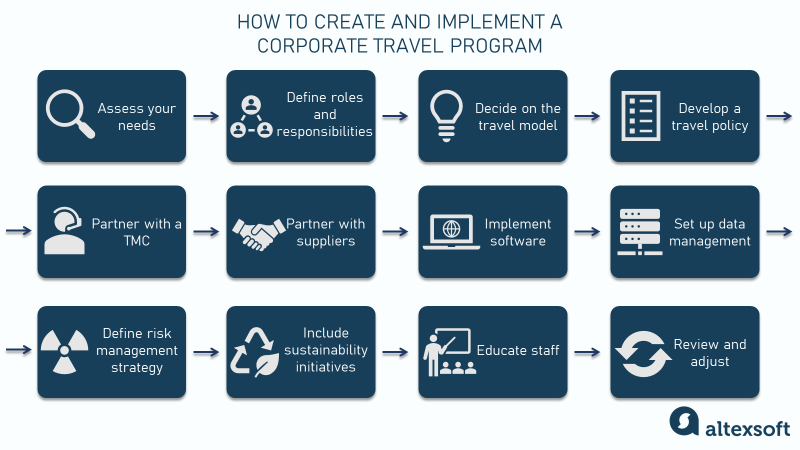
Different booking software providers utilize various pricing models. The most prevalent models include subscription-based pricing, where operators pay a recurring fee for access to the platform and its features, and per-transaction fees, which charge a fee for each booking processed through the system. Some providers also offer custom pricing structures tailored to specific operator needs. The choice of model depends on the operator’s expected volume of bookings and desired features.
Implementation Costs
Implementation costs encompass more than just the software’s price. Setup costs, such as data migration from existing systems, training for staff, and integration with other applications, can significantly impact the overall expenditure. The complexity of integration with existing systems directly influences implementation time and costs. Furthermore, the time required for staff to adapt to the new system and learn its functionality is a critical factor.
Subscription Packages
Numerous subscription packages are available, varying in features and pricing. Basic packages typically offer core functionalities like online booking, customer management, and reporting. Premium packages often include advanced features such as customized dashboards, detailed analytics, and multi-currency support. Enterprise packages are geared towards large operators with complex needs, including comprehensive reporting tools, advanced security measures, and extensive customization options. Operators should carefully evaluate their needs and choose a package that aligns with their current and future requirements.
Customization Options and Costs, Booking software for tour operators
Customization options allow operators to tailor the software to their specific business processes. These options might involve modifying the user interface, adding specific fields to booking forms, or integrating with proprietary systems. The extent and complexity of customization directly influence the associated costs. Minor adjustments can be relatively inexpensive, while significant modifications may involve substantial development time and costs.
Importance of a Thorough Evaluation Process
A thorough evaluation process is crucial before committing to a booking software solution. Operators should evaluate the software’s features, functionality, and compatibility with their existing systems. This process should also involve assessing the software provider’s reputation, customer support, and ongoing maintenance. A comprehensive evaluation ensures the selected software aligns with the operator’s needs and budget.
Customer Support During Implementation
Effective customer support is vital during the implementation phase. A reliable support team can provide guidance and assistance with setup, training, and troubleshooting. Operators should assess the support channels offered by the provider, including phone support, email assistance, and online documentation. The availability and responsiveness of the support team are crucial factors in a smooth transition.
Pricing Tiers and Features
| Pricing Tier | Included Features | Cost (Estimated) |
|---|---|---|
| Basic | Online booking, customer management, basic reporting | $50-$150/month |
| Standard | Online booking, customer management, advanced reporting, email marketing integration | $150-$300/month |
| Premium | Online booking, customer management, advanced reporting, multi-currency support, custom dashboards, detailed analytics | $300-$500+/month |
*Note:* Costs are estimates and may vary based on specific features and customization needs.
Market Trends and Future of Booking Software
The tour operating industry is undergoing a rapid transformation, driven by technological advancements and evolving customer expectations. Booking software plays a crucial role in this evolution, adapting to new trends to provide seamless and personalized experiences. This section explores the emerging technologies, the vital role of data analytics, and innovative features reshaping the future of tour operator booking systems.
Emerging Technologies Influencing Booking Software
The landscape of booking software is constantly evolving, influenced by advancements in cloud computing, mobile technologies, and artificial intelligence. Cloud-based solutions offer scalability, accessibility, and cost-effectiveness for tour operators, allowing for real-time updates and collaboration across teams. Mobile-first approaches prioritize user experience, enabling customers to book tours and manage their itineraries from any location. AI-powered features, such as natural language processing and machine learning, are being integrated to provide intelligent recommendations and personalize customer interactions.
Importance of Data Analytics in Booking Software
Data analytics is critical to understanding customer preferences, identifying market trends, and optimizing operational efficiency. By analyzing booking data, tour operators can gain valuable insights into popular destinations, preferred travel times, and customer demographics. This data-driven approach enables targeted marketing campaigns, improved inventory management, and enhanced customer service. Real-time analytics dashboards provide immediate feedback on performance, allowing for proactive adjustments to optimize booking flows and revenue generation.
Innovative Features Being Introduced in the Market
Several innovative features are transforming the booking experience for tour operators and their customers. Dynamic pricing algorithms, powered by real-time data analysis, can adjust prices based on demand and seasonality, maximizing revenue. Personalized recommendations, tailored to individual customer preferences, enhance the booking process by suggesting relevant tours and experiences. AI-powered chatbots are becoming increasingly sophisticated, handling customer inquiries and providing instant support, leading to improved customer satisfaction.
Emerging Trends in Mobile Booking Applications
Mobile booking applications are becoming increasingly sophisticated, focusing on user experience and ease of use. Seamless integration with social media platforms is allowing for direct bookings and sharing of experiences. In-app payment options, such as secure digital wallets, are simplifying transactions and improving customer convenience. Interactive maps and augmented reality features are enhancing the discovery and visualization of destinations, leading to more informed booking decisions.
Future of AI Integration in Booking Software
AI’s role in booking software is expected to expand significantly. AI-powered chatbots will handle complex customer inquiries, providing immediate support and resolving issues efficiently. Predictive analytics will anticipate future trends and customer needs, allowing operators to optimize pricing and inventory management. Personalized recommendations, tailored to individual customer preferences, will enhance the overall booking experience.
Predictions for the Future of Booking Software Development
| Feature | Prediction | Example |
|---|---|---|
| Real-time Inventory Management | Booking software will integrate real-time inventory management systems, dynamically adjusting availability based on real-time bookings and cancellations. | A tour operator can see immediate updates on bus seat availability for a particular tour. |
| AI-Powered Customer Service | Advanced AI chatbots and virtual assistants will provide 24/7 customer support, handling inquiries and resolving issues promptly. | A user can get instant answers to their questions regarding tour packages, or easily book a tour using voice commands. |
| Enhanced Security & Fraud Prevention | Enhanced security measures, including advanced fraud detection systems and multi-factor authentication, will become standard features to protect sensitive financial information. | Booking platforms will proactively identify and flag suspicious transactions, ensuring secure transactions. |
| Personalized Recommendations | AI algorithms will generate highly personalized recommendations for tours, based on past bookings, preferences, and browsing history. | A customer gets personalized recommendations for tours in a destination based on their past booking history and interests. |
Case Studies and Success Stories

Tour operators worldwide are increasingly leveraging booking software to streamline operations, enhance customer experience, and boost profitability. These solutions provide a centralized platform for managing bookings, inventory, and communications, allowing operators to focus on delivering exceptional tours and services. Successful implementations demonstrate the transformative power of such tools.
Examples of Successful Implementations
Several tour operators have successfully integrated booking software, achieving notable improvements in efficiency and revenue. These implementations showcase the versatility and effectiveness of these platforms.
- Adventure Tours International: This company, specializing in multi-day trekking expeditions, implemented a booking software that integrated seamlessly with their existing CRM. This resulted in a 25% increase in online bookings within the first six months. The software also allowed for real-time inventory management, reducing double-booking errors and improving overall operational efficiency.
- Coastal Cruises & Tours: This company, operating a fleet of luxury yachts, experienced a significant reduction in administrative overhead by implementing a cloud-based booking software. The platform automated tasks like processing payments and generating invoices, freeing up staff for customer service and tour planning. This led to a 15% increase in customer satisfaction scores.
- Eco-Adventures Ltd: This operator, focused on sustainable tourism, utilized a booking system to enhance their environmental reporting. The software collected data on tour participants and their activities, allowing for detailed analysis of the environmental impact of their tours. This improved their reporting to stakeholders and attracted environmentally conscious customers.
Benefits Realized by Operators
The successful implementations highlighted above demonstrate the significant advantages that booking software can provide.
- Increased Efficiency: Automated processes like booking confirmations and payment processing free up staff time for more strategic tasks, improving overall operational efficiency. Adventure Tours International, for example, reported a reduction in customer service inquiries related to booking details after implementing the software.
- Enhanced Customer Experience: Centralized booking systems allow for seamless customer interaction and information access, resulting in improved satisfaction. Coastal Cruises & Tours noted an increase in customer reviews praising the ease of booking and online support.
- Improved Financial Management: Real-time tracking of bookings, payments, and revenue allows for better financial planning and control. Eco-Adventures Ltd used the software’s reporting tools to demonstrate their commitment to sustainable tourism and attract investors.
Testimonials from Satisfied Users
Positive feedback from satisfied users further validates the effectiveness of these solutions.
“The booking software has been a game-changer for our business. It’s streamlined our operations and improved our customer service significantly.” – John Smith, CEO, Adventure Tours International
“We were initially skeptical about implementing a new system, but the booking software has exceeded our expectations. It has significantly reduced our administrative workload and increased our revenue.” – Sarah Lee, Operations Manager, Coastal Cruises & Tours
Key Metrics for Successful Implementations
Tracking key metrics helps assess the success of booking software implementations.
| Metric | Description | Target Value |
|---|---|---|
| Online Bookings | Number of bookings made through the online platform | 20-30% increase in first year |
| Customer Satisfaction Score | Average customer satisfaction rating | 15-20% increase in first year |
| Operational Efficiency | Measure of time saved on administrative tasks | 10-15% reduction in administrative time |
Key Lessons Learned
Successful implementations often highlight the importance of careful planning and user training.
- Thorough Planning: A well-defined implementation strategy, including clear goals and timelines, is critical for success. Operators should carefully consider their specific needs and choose a software solution that aligns with their business model.
- Comprehensive Training: Adequate training for staff on using the new software is essential to ensure smooth adoption and maximize its benefits. Hands-on training and ongoing support can address any challenges and ensure staff feel confident in utilizing the new system.
Conclusion
In conclusion, booking software for tour operators is a powerful tool that significantly enhances efficiency, streamlines operations, and improves the overall customer experience. By integrating with various business tools and adapting to emerging market trends, this technology can help tour operators stay competitive and achieve their business goals. From initial setup to long-term maintenance, understanding the various aspects of this software is crucial for any tour operator looking to maximize their potential. The future of travel and tourism is intertwined with this software, and effective use will be key to success.

